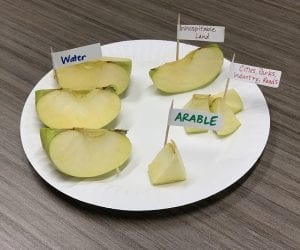We recently highlighted on our blog the National Geographic article, “Feeding Nine Billion,” and proposed that the article would have benefited by outlining a “sixth step” for feeding the world: slowing population growth. That’s why we were happy to see Lisa Palmer’s article in Slate Magazine a few weeks later, which hits the nail right on the head. The title says it all – “Famine is a Feminist Issue: To feed the world, start by teaching girls to read.”
It may seem that food production and women’s education are two entirely separate issues, however experts agree that this is far from true. In fact, education is the key to staving off hunger in the most vulnerable parts of the world. Why you ask? The article points out that for one, the current methods of increasing crop yields aren’t as effective as they once were: clearing more cropland than we’re already using would bring devastating environmental consequences, climate change is decreasing access to water for irrigation, and fertilizers are not only expensive, but also contribute to greenhouse gas emissions. These solutions alone simply won’t be enough to meet the demand of a growing population. In addition, Palmer highlights the fact that population is growing the fastest in areas where food supply is already unstable – especially sub Saharan Africa. Considering this, it becomes clear that slowing population growth is an imperative that must be met. The hopeful news is that education for women and girls is a proven way to do that.
History has shown that when women receive an education, have access to family planning, and are empowered to make their own decisions regarding family size, birth rates decline. The article uses Mali as an example: “Women with a secondary education or higher have an average of three children; and those who don’t go to school have an average of seven.” In addition, educated women have healthier children. The child of a literate woman is 50% more likely to survive infancy, thus limiting the need for women to overcompensate and have more children to ensure that some will survive. The link between access to education and slowing population growth is so strong, that “empowering women is now one of the main solutions for feeding the world.”



